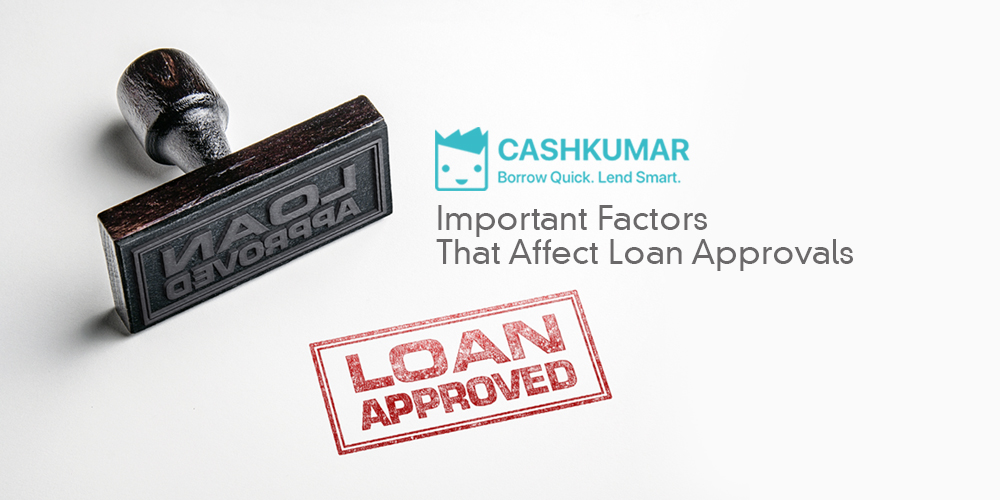Getting a loan approval from a financial institution can be a time consuming and complicated process. The financial institutions will follow a strict screening process that will enable them to arrive at decision to approve or reject the loan request.
These eligibility criteria are the foremost factor that helps businesses and individuals to meet their financial requirements through the process of lending. The primary eligibility criteria that the financial institutions will look for are:
For Salaried Individuals:
- Employment Stability and Work-Experience
- Educational Qualification and Relevance in Current Position
- Size of Family and Earning Members
- Repayment Potential basis Current CTC
- Age of Applicant at the time of Application and Years to Retirement
- Credit History of the Individual
- Individual Banking Practices, for example, Average Bank Balance, Current EMI Commitments
For Self Employed Individuals or Businesses:
- Individual and Organization’s Credit History, apart from a Proprietorship Firm
- Individual or Organization’s Cash Flow, Income, Profitability that Determines Repayment Potential
- Individual or Organizational Stability and History in the chosen Line of Business
- Supplier Dependency
- Linear Family Dependency of the Promoters
- Industry Developments, Margins, etc.
- Economic Stance
- Reflection of Organizational or Individual Turnover in Bank Account
Various financial institutions will assign different weightage to these factors. This should be borne in mind by the applicant before making a loan request. Financial institutions are constantly questioning themselves if it is a secure risk to invest in the individual or a particular business considering the uncertainties of the marketplace.
The factors that determine the loan approval from a financial institution in India may commonly be referred to as the 5Cs.
Credit Score:
Financial institutions will first check the individual or organization’s credit history and score. TransUnion CIBIL, Equifax, Experian and CRIF High Mark are organizations in India that provide a three digit score between the range of 300 and 900 that helps financial institutions to assess if an individual or an organization is a credible risk in terms of accepting their loan application. The most acceptable score is offered by TransUnion CIBIL. A good credit score will help in getting a loan approval quickly whereas a bad score can result in a loan rejection. According to TransUnion CIBILScore, having a credit score of 750 and above results in 79% approval rate in terms of loans by financial institutions in the country. Having a good credit score also brings in benefits such as competitive interest rates too.
Thus, it is important for the individual or the organization to maintain a good credit score before making a loan application.
Capacity:
The next checkpoint by financial institutions is to determine if the individual or the organization has the capacity to repay the loan back to the financial institution. By conducting a detailed analysis of the fixed and variable incomes in the case of salaried individuals and the organization’s cash flow, earnings, profitability etc, help in assessment of the loan request.
The financial institution will also take into consideration the repayment history of any loans or credit card payments that you may have taken or incurred in the past. If either the individual or the organization has been late in their payments, the financial institution will take in to account, how recently did that happen and the difference in time between the due date and the payment made. If there has been a bankruptcy filed, which is a matter of public record, will also affect the sanctioning of the loan.
All of these together help the financial institution to assess the repayment capacity of the individual or the organization if the loan is approved.
Collateral:
Apart from personal loan and some types of business loans which can be unsecured, all other types of loans require a collateral or a security to be listed, against which the loan by the financial institutions may be sanctioned. Collaterals can be in the form of immovable assets, for example, property/land or movable assets including, fixed deposits, life insurance, etc. A security can also include receivables and inventory. The financial institutions perform a check on the asset value in terms of current market trends that determines the maximum amount of the loan that may be approved. The loan amount is actually a percentage of the assessed value of the collateral.
Character:
In the case of both the individual and the organization, the financial institution will take into account the stability in incomes, credit history and overall track records that establishes the character of the borrower.
Incase of salaried individuals, their employment history plays a critical part as it helps to establish the flow of steady income, the employment status and overall credit history of the borrower.
For both individuals and organizations, the financial institutions will carefully check out all account details to see if there has been any suit filed or written of cases. In addition to that, the lenders will also look into the proportion of prevailing EMIs or any existing loans in comparison to the current income or earnings at the time when the loan application is made.
Conditions:
The prevailing market trends is the last factor to be considered by financial institutions when reviewing a loan application.
Based on these key factors, financial institutions are able to arrive at a decision of approving or rejecting a loan application. As an individual or an organization, ensuring a clean credit score and frequently scrutinizing the overall credit history significantly increases the chances of loan approvals.
Check your CIBIL Score Online




